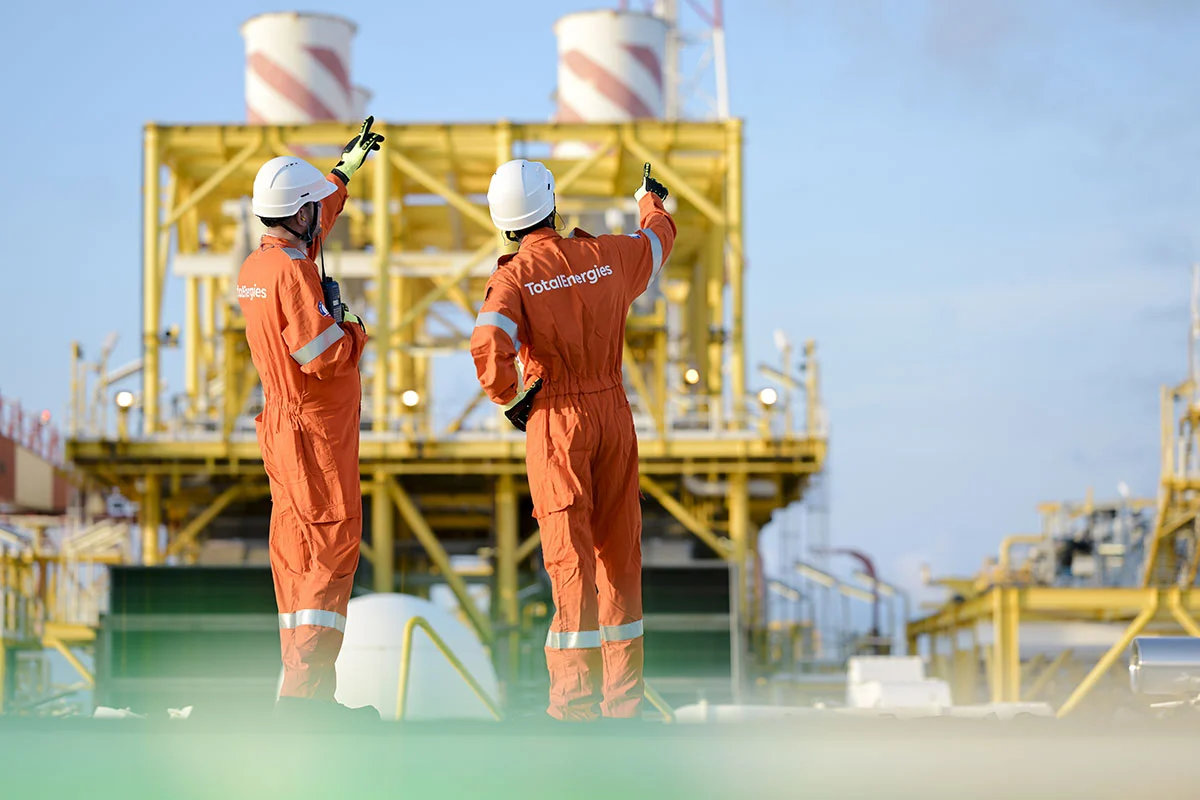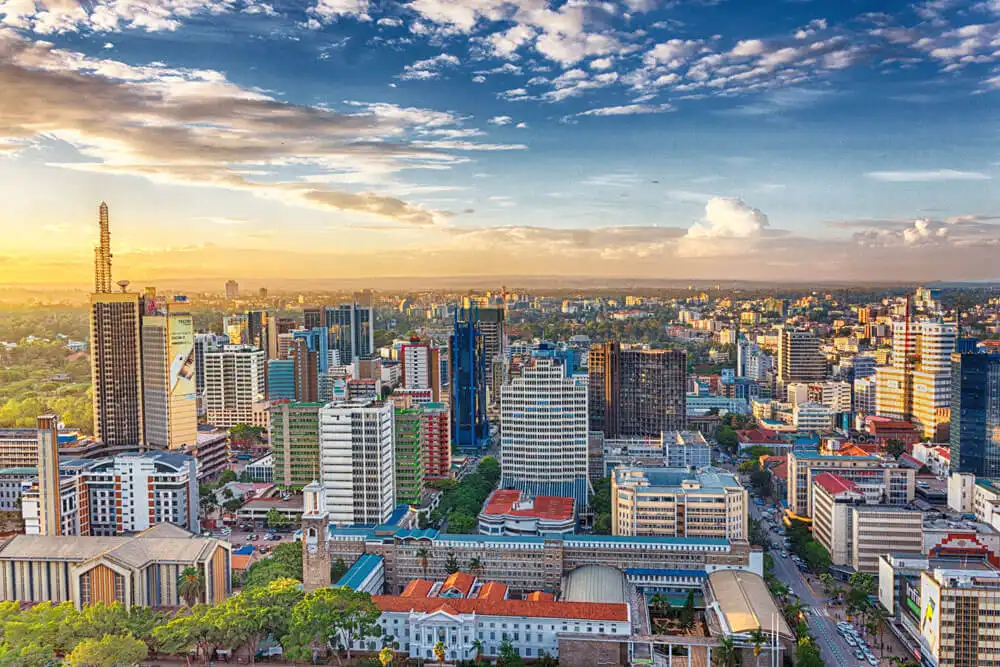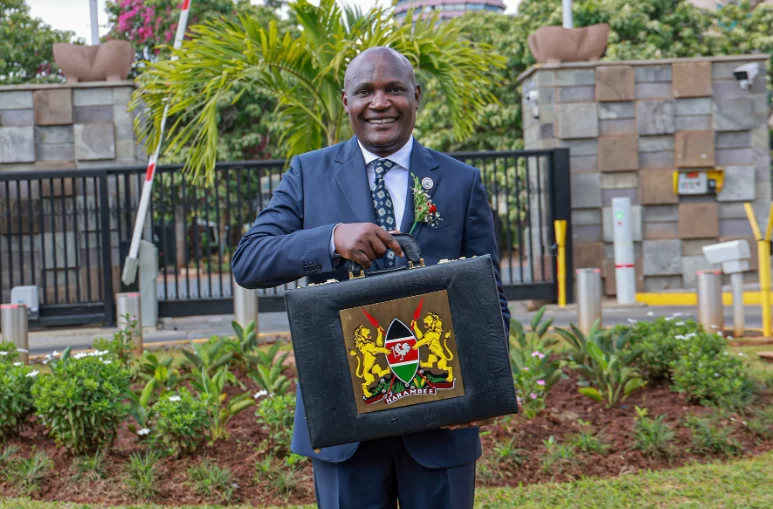Global energy giant TotalEnergies has announced the successful commencement of production from two significant new projects in Angola’s deepwater Blocks 17 and 17/06. These strategic investments, the Begonia and Clov Phase 3 subsea satellite developments, are poised to collectively add 60,000 barrels of oil per day (bpd) to Angola’s output, reinforcing the nation’s crucial role in global energy supply and bolstering TotalEnergies’ upstream portfolio.
The start-up of these projects, leveraging existing infrastructure, highlights TotalEnergies’ commitment to efficient, low-cost, and low-emissions production in a region that has long been a cornerstone of its African operations. This move is not only vital for the French supermajor’s growth targets but also instrumental for Angola, an OPEC member, in its efforts to maintain crude oil production levels above the critical 1 million bpd mark.
Angola: A Golden Block in TotalEnergies’ Crown
TotalEnergies’ relationship with Angola stretches back decades, establishing the country as a pivotal hub for its deepwater expertise. The French company has been a leading operator in Angola since 1953, evolving with the nation’s oil and gas sector. At the heart of this enduring partnership lies Block 17, famously dubbed the “golden block” in the late 1990s and early 2000s. This moniker was earned through a series of colossal discoveries, including the Girassol, Dalia, Pazflor, and Clov fields, which transformed Angola into a major global oil producer.
These discoveries were not just significant in their size but also in their technological complexity, pushing the boundaries of deepwater exploration and production. The development of these fields required pioneering subsea technologies and the deployment of massive Floating Production, Storage and Offloading (FPSO) vessels, which act as offshore oil and gas processing facilities and storage tanks. TotalEnergies’ success in Block 17 cemented its reputation as a leader in complex deepwater projects, demonstrating its capacity to unlock hydrocarbon resources in challenging environments.
Block 17, where TotalEnergies operates with a 40% stake alongside partners Equinor (23.33%), ExxonMobil (20%), and BP (16.67%), continues to be a prolific asset. Its long production history and the availability of existing infrastructure make it an ideal candidate for tie-back developments, where smaller, newly discovered reserves are connected to existing processing facilities, thereby maximizing efficiency and minimizing new capital expenditure.
Block 17/06, while a more recent addition to TotalEnergies’ Angolan portfolio, represents a strategic extension of its deepwater capabilities. TotalEnergies operates this block with a 30% interest, alongside partners Sonangol P&P (30%), SSI (25%), Azinam (10%), and ACREP (5%). The synergies between Block 17 and 17/06 are now being fully realized with the Begonia project.
Technical Marvels: Subsea Satellites and FPSOs in Action
The success of deepwater oil production in Angola, and indeed globally, hinges on advanced subsea technology and the efficiency of FPSO vessels.
What are Subsea Satellites?
Subsea satellites are individual wells or small clusters of wells located on the seabed, typically in deepwater environments, that are connected back to a larger, existing production facility (like an FPSO) via flowlines and umbilical lines. Instead of building entirely new, costly platforms for each new discovery, these satellites allow operators to exploit smaller, geographically dispersed reservoirs by tying them back to established infrastructure. This approach significantly reduces capital expenditure, accelerates time to first oil, and minimizes the environmental footprint compared to standalone developments.
For Begonia and Clov Phase 3, the “subsea satellite” model is key. Begonia, a five-well subsea satellite, and Clov Phase 3, a four-well subsea scheme, exemplify this strategy. The wells are drilled and completed on the seabed, and the produced fluids (oil, gas, and water) are transported through subsea flowlines to the nearby FPSOs for processing.
The Role of FPSOs: Floating Production Hubs
Floating Production, Storage and Offloading (FPSO) vessels are essentially floating oil and gas production facilities. They are crucial for deepwater fields where fixed platforms are economically or technically unfeasible due to extreme water depths. An FPSO receives crude oil and natural gas from subsea wells, processes it, stores the treated oil, and then offloads it periodically onto shuttle tankers for transport to refineries. They also handle gas processing, water injection for reservoir pressure maintenance, and power generation for the entire offshore operation.
TotalEnergies operates several FPSOs in Angola, including the Pazflor FPSO and Clov FPSO. The brilliance of the Begonia and Clov Phase 3 developments lies in their ability to leverage the “spare capacity” of these existing FPSOs. This means the Pazflor and Clov vessels, which were designed with excess processing and storage capabilities, can now accommodate the additional production from the new satellite wells without requiring significant upgrades or new, costly floating facilities. This strategy is a prime example of capital efficiency in the oil and gas industry.
Begonia is particularly innovative as it represents Angola’s “first inter-block development.” This means that the wells for Begonia are located in Block 17/06, but their production is routed to the Pazflor FPSO, which is situated in the adjacent Block 17. This inter-block synergy allows for optimal resource utilization across concession boundaries, a complex feat requiring close collaboration between the block partners and the Angolan regulator.
TotalEnergies’ Strategic Imperative: Growth, Efficiency, and Lower Emissions
Nicolas Terraz, TotalEnergies’ President for Exploration & Production, emphasized that these are “low-cost and low-emissions” developments. This statement aligns with TotalEnergies’ broader strategy to selectively invest in projects that offer competitive costs and reduced environmental impact, even as the company navigates the global energy transition.
Low-Cost Developments
The “low-cost” aspect is primarily achieved through the tie-back strategy. By connecting new wells to existing FPSOs, TotalEnergies avoids the massive capital expenditure associated with building new standalone production facilities. This approach optimizes the return on investment, making even smaller, marginal discoveries economically viable. In a volatile oil price environment, such capital discipline is crucial for shareholder value.
Low-Emissions Production
The “low-emissions” claim, while always a point of scrutiny in the fossil fuel industry, refers to efforts to minimize the carbon footprint of the production process itself. For offshore operations, this typically involves:
- Reduced Flaring: Minimizing the burning of associated gas, which releases CO2 and methane. Modern facilities often reinject gas back into the reservoir or find ways to commercialize it.
- Energy Efficiency: Optimizing the energy consumption of the FPSO and subsea equipment, potentially through electrification or more efficient power generation onboard.
- Methane Leakage Reduction: Implementing robust programs to detect and repair methane leaks, a potent greenhouse gas.
- Operational Excellence: Streamlining operations to reduce downtime and improve overall energy intensity per barrel produced.
While the production of oil and gas inherently involves emissions, TotalEnergies’ focus on “low-emissions” developments reflects a broader industry trend towards more responsible production practices, even as the world transitions to cleaner energy sources. These projects contribute to TotalEnergies’ target of growing its upstream production by more than 3% in 2025, demonstrating that strategic investments in high-quality, efficient assets remain a core part of its business model.
Angola’s National Imperative: Sustaining Production and Economic Stability
For Angola, the start-up of Begonia and Clov Phase 3 is a significant national achievement. Paulino Jeronimo, chairman of ANPG, Angola’s National Agency for Oil, Gas and Biofuels, highlighted that these new projects are crucial for the country to “maintain its production levels above 1 million bpd.”
Oil as the Economic Backbone
Angola’s economy is heavily reliant on oil production, which accounts for the vast majority of its exports and government revenue. Maintaining stable production levels is therefore paramount for the country’s fiscal health, its ability to fund public services, and its overall economic stability. A sustained output above 1 million bpd provides a strong foundation for the national budget and allows for continued investment in diversification efforts.
The Role of ANPG
ANPG, established in 2019, is Angola’s national concessionaire and regulator for the oil, gas, and biofuels sector. Its mandate includes managing hydrocarbon resources, promoting exploration and production activities, and ensuring compliance with regulations. Paulino Jeronimo’s comments underscore ANPG’s commitment to fostering an attractive investment environment and supporting projects that bring new production online. The agency plays a critical role in facilitating partnerships between international oil companies (IOCs) and the national oil company, Sonangol, ensuring that national interests are served while attracting the necessary foreign investment and expertise.
Jeronimo’s statement that “Projects like these are extremely important as they prove the innovative spirit and dynamism of the oil sector in Angola” reflects the country’s pride in its deepwater capabilities and its ongoing efforts to remain a competitive and reliable oil producer on the global stage.
Partners and Collaborative Success
The success of these projects is a testament to the collaborative spirit among the various partners involved in Blocks 17 and 17/06. In Block 17, TotalEnergies operates alongside:
- Equinor: The Norwegian state-owned energy company, a significant player in offshore oil and gas.
- ExxonMobil: One of the world’s largest publicly traded international oil and gas companies.
- BP: A British multinational oil and gas company.
These partnerships bring together diverse technical expertise, financial strength, and operational experience, which are essential for managing the complexities and risks associated with deepwater exploration and production.
In Block 17/06, the partnership includes:
- Sonangol P&P: The exploration and production arm of Angola’s national oil company, Sonangol, ensuring national participation and knowledge transfer.
- SSI (Sinopec Sonangol International): A joint venture between China’s Sinopec and Angola’s Sonangol, reflecting growing Asian interest in Angolan resources.
- Azinam: An independent oil and gas exploration company focused on Africa.
- ACREP (Angola Cabinda Resources Exploration & Production): Another local Angolan entity.
The multi-stakeholder nature of these blocks necessitates robust joint operating agreements and a shared vision for maximizing resource recovery and efficiency. The ability of these diverse entities to work together effectively is a critical factor in the long-term success of Angola’s oil sector.
Broader Economic and Social Impact on Angola
Beyond direct oil revenues, these projects have a ripple effect across the Angolan economy:
- Job Creation: The construction, installation, and ongoing operation of subsea facilities and FPSOs create thousands of direct and indirect jobs. This includes highly specialized roles for engineers, technicians, and maritime personnel, as well as opportunities in supporting industries like logistics, catering, and local services.
- Local Content Development: Angolan regulations increasingly emphasize local content, encouraging international operators to utilize Angolan goods, services, and personnel. This fosters the growth of local businesses and builds domestic technical capabilities.
- Infrastructure Development: Oil and gas investments often spur broader infrastructure development, including improvements in ports, roads, and power supply, which benefit other sectors of the economy.
- Technology Transfer: Collaboration with international supermajors facilitates the transfer of advanced technologies and best practices to Angolan professionals and companies, enhancing the country’s overall industrial capacity.
These contributions are vital for Angola as it strives to diversify its economy away from an over-reliance on oil, but simultaneously needs to maximize revenue from its primary resource to fund that diversification.
Environmental Stewardship and Future Outlook
While “low-emissions” is a stated goal, the oil and gas industry faces increasing pressure regarding its environmental footprint. TotalEnergies, like other major energy companies, is navigating the complex landscape of energy transition. The company has set ambitions to achieve net zero emissions by 2050, across its operations and energy products. Projects like Begonia and Clov Phase 3, by being more efficient and less carbon-intensive than older methods, are presented as part of this transition, providing necessary energy with a reduced impact while the company invests in renewables and other low-carbon solutions.
For Angola, the future of its oil sector will involve balancing the need for continued production to drive economic growth with global pressures for decarbonization. The country has significant untapped potential in deepwater and ultra-deepwater areas, and the success of projects like Begonia and Clov Phase 3 will likely encourage further exploration and development. ANPG continues to offer new blocks in licensing rounds, seeking to attract fresh investment and maintain the dynamism of its oil industry.
The long-term partnership between TotalEnergies and Angola, exemplified by these latest start-ups, underscores a shared commitment to maximizing the value of the country’s hydrocarbon resources. As the global energy landscape evolves, efficient, technologically advanced, and environmentally conscious production from established basins like Angola will remain crucial for meeting global energy demand. The “golden block” continues to shine, contributing significantly to both TotalEnergies’ strategic objectives and Angola’s national prosperity.
Ready to take your career to the next level? Join our dynamic courses: ACCA, HESI A2, ATI TEAS 7 , HESI EXIT , NCLEX – RN and NCLEX – PN, Financial Literacy!🌟 Dive into a world of opportunities and empower yourself for success. Explore more at Serrari Ed and start your exciting journey today! ✨
Photo source: Google
By: Montel Kamau
Serrari Financial Analyst
24th July, 2025
Article, Financial and News Disclaimer
The Value of a Financial Advisor
While this article offers valuable insights, it is essential to recognize that personal finance can be highly complex and unique to each individual. A financial advisor provides professional expertise and personalized guidance to help you make well-informed decisions tailored to your specific circumstances and goals.
Beyond offering knowledge, a financial advisor serves as a trusted partner to help you stay disciplined, avoid common pitfalls, and remain focused on your long-term objectives. Their perspective and experience can complement your own efforts, enhancing your financial well-being and ensuring a more confident approach to managing your finances.
Disclaimer: This article is for informational purposes only and does not constitute financial advice. Readers are encouraged to consult a licensed financial advisor to obtain guidance specific to their financial situation.
Article and News Disclaimer
The information provided on www.serrarigroup.com is for general informational purposes only. While we strive to keep the information up to date and accurate, we make no representations or warranties of any kind, express or implied, about the completeness, accuracy, reliability, suitability, or availability with respect to the website or the information, products, services, or related graphics contained on the website for any purpose. Any reliance you place on such information is therefore strictly at your own risk.
www.serrarigroup.com is not responsible for any errors or omissions, or for the results obtained from the use of this information. All information on the website is provided on an as-is basis, with no guarantee of completeness, accuracy, timeliness, or of the results obtained from the use of this information, and without warranty of any kind, express or implied, including but not limited to warranties of performance, merchantability, and fitness for a particular purpose.
In no event will www.serrarigroup.com be liable to you or anyone else for any decision made or action taken in reliance on the information provided on the website or for any consequential, special, or similar damages, even if advised of the possibility of such damages.
The articles, news, and information presented on www.serrarigroup.com reflect the opinions of the respective authors and contributors and do not necessarily represent the views of the website or its management. Any views or opinions expressed are solely those of the individual authors and do not represent the website's views or opinions as a whole.
The content on www.serrarigroup.com may include links to external websites, which are provided for convenience and informational purposes only. We have no control over the nature, content, and availability of those sites. The inclusion of any links does not necessarily imply a recommendation or endorsement of the views expressed within them.
Every effort is made to keep the website up and running smoothly. However, www.serrarigroup.com takes no responsibility for, and will not be liable for, the website being temporarily unavailable due to technical issues beyond our control.
Please note that laws, regulations, and information can change rapidly, and we advise you to conduct further research and seek professional advice when necessary.
By using www.serrarigroup.com, you agree to this disclaimer and its terms. If you do not agree with this disclaimer, please do not use the website.
www.serrarigroup.com, reserves the right to update, modify, or remove any part of this disclaimer without prior notice. It is your responsibility to review this disclaimer periodically for changes.
Serrari Group 2025












